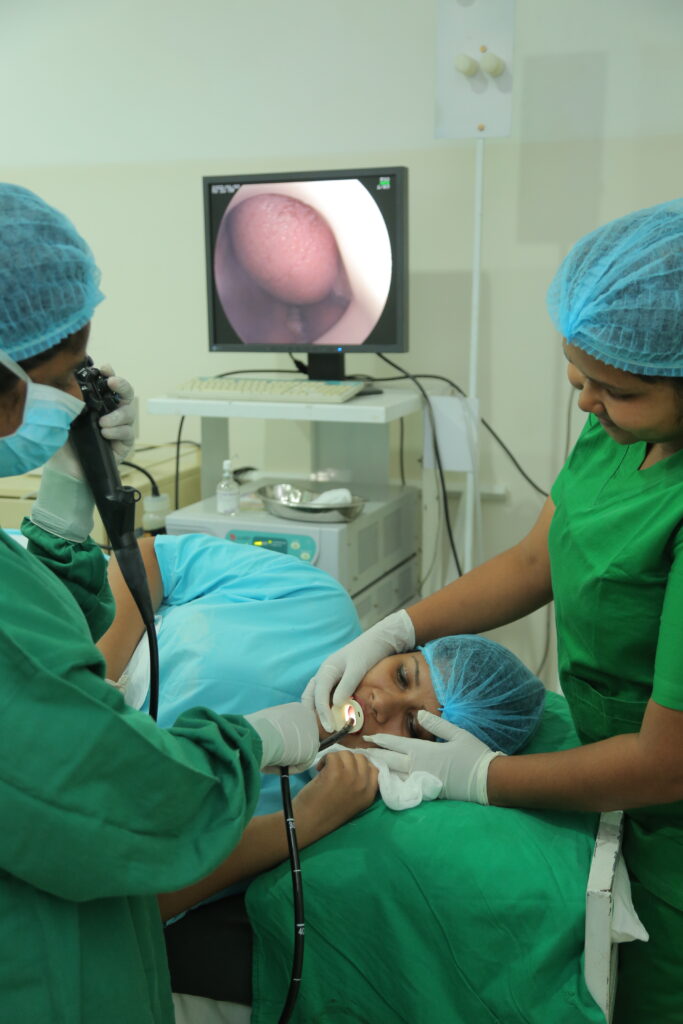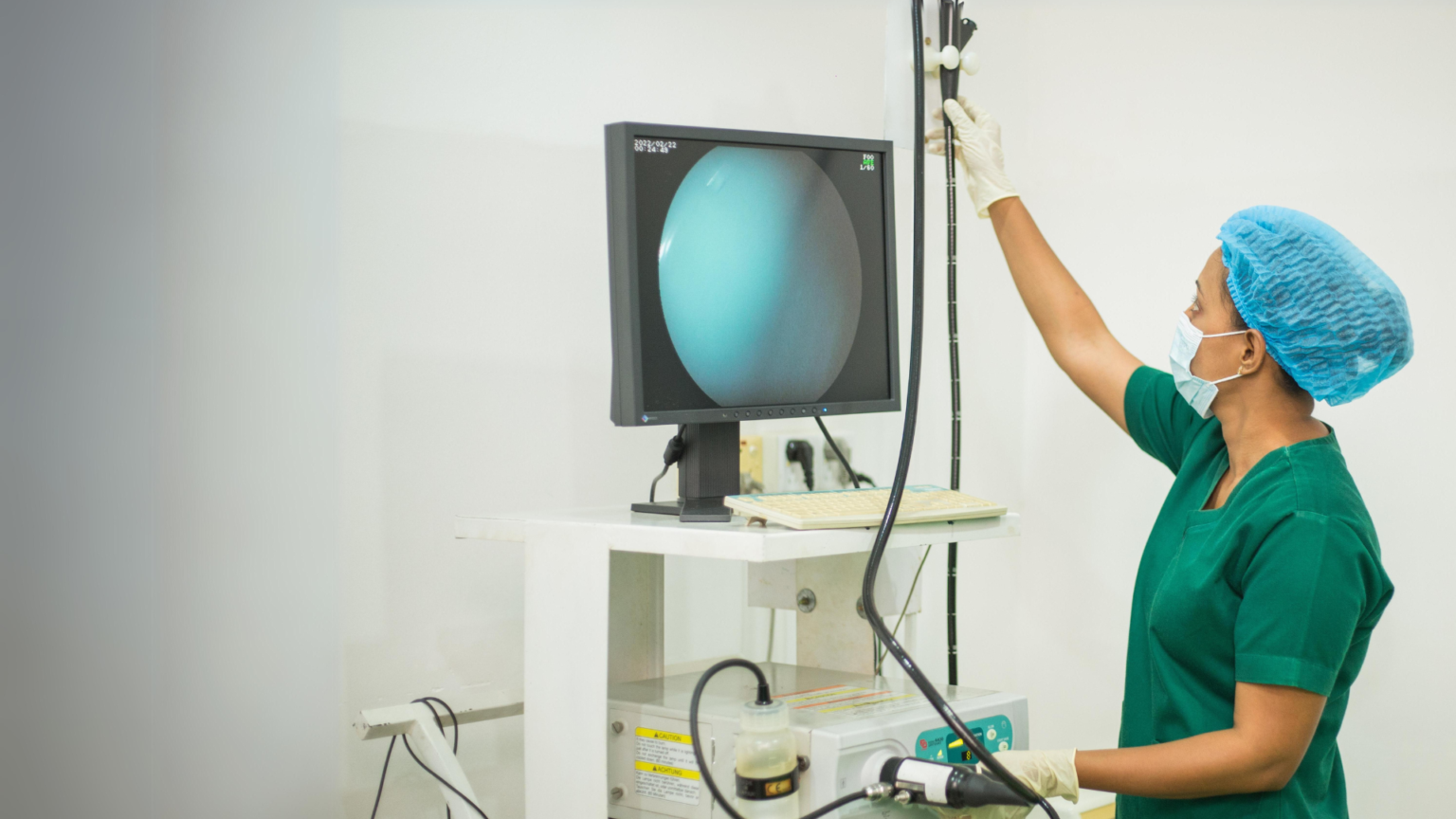Endoscopy
At Winlanka Hospital, our Endoscopy Unit is equipped with the latest high-technology systems for both upper and lower gastrointestinal procedures. Our commitment to delivering superior diagnostic and therapeutic services is reflected in the quality of our imaging and the expertise of our medical professionals.

- Advanced Imaging Technology
Our endoscopy unit features cutting-edge upper gastrointestinal (GI) and lower gastrointestinal (GI) systems. These advanced technologies provide high-resolution images, allowing for precise examination and diagnosis of various conditions affecting the digestive tract. The superior image quality ensures that even the smallest abnormalities can be detected and addressed promptly.
- Expert Specialists
Endoscopic procedures at Winlanka Hospital are performed by a team of experienced specialist gastroenterologists and surgeons. Our specialists are highly trained in the latest endoscopic techniques and are dedicated to providing the best possible care. Their expertise ensures that procedures are conducted safely and effectively, with a focus on patient comfort and accurate diagnosis.
- Comprehensive GI Care
Our endoscopy services cover a wide range of diagnostic and therapeutic procedures. Whether it’s an upper GI endoscopy to examine the esophagus, stomach, and duodenum, or a lower GI endoscopy (colonoscopy) to inspect the colon and rectum, our unit is fully equipped to handle all aspects of gastrointestinal care. We also offer specialized procedures such as biopsies, polyp removal, and treatment for GI bleeding.
Commitment to Patient Well-Being

- At Winlanka Hospital, we are committed to providing a patient-centered approach to endoscopic care. From initial consultations and thorough pre-procedure assessments to post-procedure care and follow-up, we ensure a seamless and supportive experience for our patients. Our goal is to deliver accurate diagnoses and effective treatments while prioritizing patient safety and comfort.
Online simple step for appointment

Make Appointment

Select Doctor

Get Consultation
Frequently asked questions
Preparation for an endoscopy typically involves fasting for a certain period before the procedure. For a colonoscopy, you will need to follow a clear liquid diet and take a prescribed bowel preparation to clear your intestines. It’s important to follow the preparation instructions closely to ensure the procedure’s accuracy. If you experience any issues with the preparation, such as nausea or vomiting, contact our office for guidance. Hydration is key during this period to minimize symptoms like dehydration.
Yes, you will need a responsible adult to drive you home after your endoscopy. The procedure involves sedation, which can impair your reflexes, coordination, and judgment. You will not be allowed to drive or operate machinery for at least 12 hours following the procedure. It is also advisable to have someone stay with you for the first few hours after you return home as you recover from the sedation.
An endoscopy procedure generally takes about 20 to 45 minutes, depending on whether any additional interventions, such as biopsies or polyp removal, are necessary. Including the preparation and recovery time, you should plan to be at the endoscopy center for approximately 1.5 to 3 hours. After the procedure, you may feel sleepy or experience a mild sore throat, especially if you had an upper endoscopy. Most patients can resume their normal diet and activities the following day, but it’s best to follow specific advice from your gastroenterologist.

